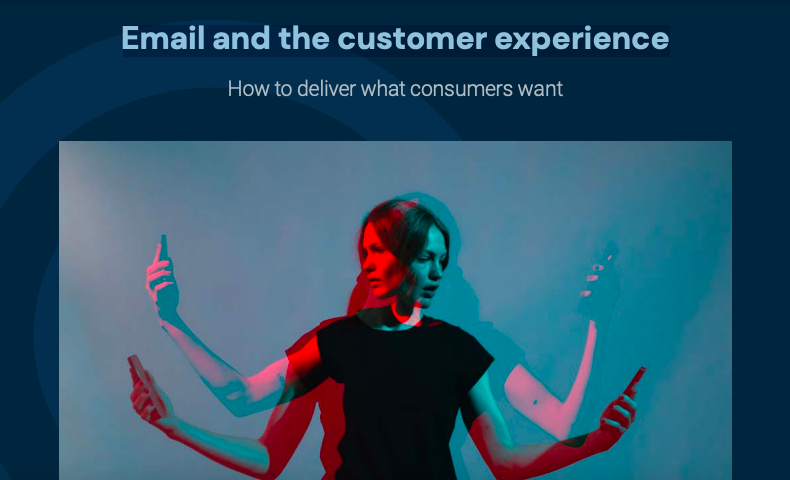There are a number of regulations surrounding email marketing which differ according to whether you are targeting an individual or an organisation so it’s important to keep up-to-date with the latest legislation and best practice.
The revised laws in the United Kingdom are a year old now, yet it appears many people in direct marketing are still unsure of what exactly the law is and how it applies to them. In this article I will look to try and demystify some of the regulations and provide an easy to understand guide to the law.
The article is not a comprehensive guide to the law, and should not be used in lieu of proper legal advice, however it will highlight area’s that many marketers overlook on a regular basis.
Identify yourself clearly
The law:
Although these rules came into force on 1 January 2010, it is still good to remind ourselves of them, especially as some people have yet to implement them. These are not best practice guidelines, it is the law. The rules mean company information must be included on all electronic communications. You must include the full registered name and office address of your company, as well as country of registration, on all email marketing.
This information must also be displayed on all websites, company business emails and order forms.
This was an extension of the existing requirements covering business letters to now include business emails and websites. For more information on this law you can read The Companies (Registrar, Languages and Trading Disclosures) Regulations 2006 here
A suggested best practice tip:
Why not explain who you are and why the recipients’ data is being used at the top of the email?
It could be as simple as: ‘This message contains important information about (subject matter) and was sent by (company name). You have received this email because you signed up to receive more information on our website.’
Or if the situation dictates: ‘Your details were obtained from a third party data supplier and were gathered from a telemarketing research exercise. Your data is being used in accordance with current business email legislation including the Data Protection Act & DPEC’.
Simple messages such as these instill trust in the recipient because you are making clear the reason you are emailing them and from where their data was obtained.
Make it easy to unsubscribe
The law:
There must be a clearly displayed opt-out link on every email allowing recipients to opt-out of receiving future email messages.
A suggested best practice tip:
Never try and hide the opt-out link – this will be frustrating to the recipient and damage your brand or marketing campaign.
The key to overcoming high unsubscribe rates is relevancy. If you want to keep people reading your email marketing you must make every message relevant to the recipient, otherwise they are likely to opt out of your communications and future marketing.
It’s also essential that when an opt-out request is received, it is honoured, with the contact details ideally being ‘suppressed’ rather than deleted so that data can never be re-entered by mistake in the future.
Don’t disclose recipients’ details
The law:
It is illegal to reveal recipients’ details on any emails, by adding email addresses in a ‘CC’ list for instance. This should not be a problem if you are using a professional email service provider, as all information will be referenced from a database, not entered into the email itself.
A suggested best practice tip:
Handling all email marketing using a standard email system is a legal mine-field and you need to ask what systems you have in place to deal with complaints, unsubscribes and whether you can handle your data in a professional and efficient manner.
If in doubt use dedicated email marketing software to ensure data is handled securely and any unsubscribe requests are processed effectively and in compliance with the law.
Comply with the Data Protection Act
The law:
The Data Protection Act regulates how you build and manage your database. The law states that consent is needed from the recipient before sending unsolicited e-mail marketing to individual subscribers.
A common misconception is that this consent can only be gained by an ‘opt-in’ however this consent can be gained via a ‘soft opt-in’ when all of the following cases apply:
- You have obtained a person’s details in the course of a sale or negotiations for a sale of a product or service
- The messages are only marketing similar products or services
- The person is given a simple opportunity to refuse marketing when their details are collected and if they don’t opt out at this point are given a simple way to do so in future messages
It’s important to note that these rules don’t apply when sending emails to organisations, though you must still identify yourself and provide an address.
A suggested best practice tip:
We recommend you use double opted in data or well-managed single opted in data as this achieves the best results.
Double opted in data is far less likely to suffer from list fatigue or a high unsubscribe rate as the recipient has taken two positive steps to subscribe to email marketing.
This will usually entail entering data into a website which triggers a confirmation email requesting the recipient to activate their subscription to communications.
Creating double opt-in data – sending emails confirming recipients want to opt-in – is also a valuable transactional marketing tool. It protects your database by confirming the data entered is both a valid email address and doesn’t belong to someone else.
If it is entered on behalf of another person, your emails may be junked when you send what you consider is legitimate marketing to someone who hasn’t opted in to receive it. If you are purchasing your data then use a legitimate list broker and ask how the data was gathered and maintained.
This list of issues and tips is not exhaustive but we feel it highlights the issues that some marketers regularly miss.







